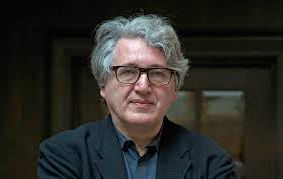
Arquivo para January 8th, 2015
Boris Broys and postmodern art
 It seems that there is little to say about art, or is there perhaps a confusion between the limits of what is guaranteed and what is not, but I think Boris Groys and Jacques Rancière (gets to last post) can rather say something.
It seems that there is little to say about art, or is there perhaps a confusion between the limits of what is guaranteed and what is not, but I think Boris Groys and Jacques Rancière (gets to last post) can rather say something.
Boris Groys is a German 68-year-old study of mathematics from 1965 to 1971 at the University of Leningrad (now St. Petersburg), working on a lot of research and attended the Moscow Conceptualism movement and published in 1979 the essay “Romantic Conceptualism of Moscow “then in 1981, was doing his PhD in philosophy at the University of Munich.
Groys is a member of the Association Internationale des Critiques d’Art (Ahikam), and has served as a partner of numerous institutions, including the International Research Center for Cultural Studies (IFK) in Vienna, Austria, Harvard University Art Museum, and University of Pittsburg.
Wrote the controversial “The Communist Postscript” (2010) and “Introduction to Antiphilosophy” (2012), but his little essay on Art in the age of digitization, for me an important work, which analyzes the famous work of Walter Benjamin “The Work of art in the Age of Mechanical reproduction “which assumes the possibility of a technically identical and perfect reproduction of form that does not allow a distinction between the original and the copy (Groys, 2010).
He teaches since 1994, philosophy and media theory at the Academy of Design (Hochschule für Gertaltung), which is directed by Peter Sloterdijk in Karlsruhe (Germany) our next post.
Boris Groys in his work art and philosophy have different treatments, for him, both one and the other mainly deal with issues that do not admit a permanent solution and therefore are immortal, in this approach, objectivity and subjectivity are mixed, and this perspective agreed.
Cultural requirements are not fictitious, say to a spectrum of things, and almost always the goal of artists and thinkers is to overcome what is considered more advanced, it has something dead in a field, and so position yourself in the best culture to the point which makes mortal immortal for having fulfilled the imaginary requirement of his time, and that this immortality is artificial, has the effect of political awareness
So what Groys proposed is that the symbolic space of art must include the dead, represented by his works, images, theories, attitudes, languages.
So the real cultural pressure does not come from positions of power, but from the dead and then it is a much more serious case that living as they continue to disturb this as creators
It’s what makes dead artists still in competition; as they, want, for example, get to have their whole issues in their libraries.

